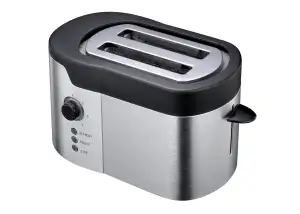Breaking News: Canned Meat Recalled - Ensure Safety at Home

- Understanding the recall: Reasons behind the recall of canned meat products
- Potential health risks: Exploring the dangers associated with consuming recalled canned meat
- Identifying affected products: How to check if your canned meat is part of the recall
- Taking necessary precautions: Steps to ensure your safety when handling canned meat
- Safe alternatives: Exploring alternative options for protein sources in your home cooking
In recent news, a widespread recall of canned meat products has sent shockwaves through the culinary world. This alarming development has left home cooks and food enthusiasts worried about the safety of their favorite pantry staple. With health and well-being at stake, it is crucial to understand the reasons behind this recall and take necessary precautions to ensure our safety in the kitchen. Join us as we delve into the details of this pressing issue and explore ways to protect ourselves from potential harm.
Understanding the recall: Reasons behind the recall of canned meat products
The recent recall of canned meat products has raised concerns among home cooks. But why exactly are these products being recalled? The main reason behind the recall is a potential contamination with harmful bacteria, such as Salmonella or Listeria. These bacteria can cause serious illnesses if consumed, especially in individuals with weakened immune systems. The recall is a precautionary measure taken by manufacturers to ensure the safety of consumers and prevent any potential health risks. It is important for home cooks to understand the reasons behind the recall in order to take necessary precautions and protect themselves and their families from any potential harm.
Potential health risks: Exploring the dangers associated with consuming recalled canned meat
Consuming recalled canned meat poses potential health risks. The main concern is the presence of harmful bacteria, such as Clostridium botulinum, which can cause botulism. This serious illness can lead to muscle weakness, difficulty breathing, and even paralysis. Other risks include food poisoning from bacteria like Salmonella or E. coli, which can cause severe gastrointestinal symptoms. It is crucial to avoid consuming recalled canned meat to protect your health and well-being.
Identifying affected products: How to check if your canned meat is part of the recall
To check if your canned meat is part of the recall, there are a few steps you can take. Firstly, look for any signs or notifications from the manufacturer or the store where you purchased the product. They may have issued a public statement regarding the recall. Secondly, check the packaging of your canned meat for any specific lot numbers or expiration dates that match those mentioned in the recall notice. Lastly, visit the website of the manufacturer or regulatory agencies such as the Food and Drug Administration (FDA) to see if they have published a list of affected products. By being proactive and checking these sources, you can ensure that you are not unknowingly consuming recalled canned meat.
Taking necessary precautions: Steps to ensure your safety when handling canned meat
When it comes to handling canned meat, it is essential to take necessary precautions to ensure your safety. Here are some steps you can follow:
1. Check the recall list: Refer to the official recall list provided by the manufacturer or regulatory authorities. Make sure to cross-check the batch numbers and expiration dates of your canned meat products.
2. Dispose of recalled products: If you find that your canned meat is part of the recall, do not consume it. Safely dispose of the product by sealing it in a plastic bag and placing it in a secure trash bin.
3. Clean your pantry: Thoroughly clean and sanitize the area where you stored the recalled canned meat. Use hot soapy water to wash shelves, containers, and utensils that may have come into contact with the product.
4. Wash hands properly: Before and after handling any food, including canned meat, always wash your hands with soap and warm water for at least 20 seconds. This helps eliminate any potential contamination.
5. Cook thoroughly: If you decide to consume non-recalled canned meat products, ensure they are cooked thoroughly before eating. Heat them at a high temperature to kill any bacteria that may be present.
By following these precautions, you can minimize the risk of foodborne illnesses associated with recalled canned meat products and prioritize your safety in the kitchen.
Safe alternatives: Exploring alternative options for protein sources in your home cooking
While the recall of canned meat products may leave you concerned about your protein options, there are several safe alternatives to consider. Opt for fresh or frozen meats, such as chicken, beef, or fish, which can be easily stored and cooked at home. Additionally, plant-based proteins like tofu, lentils, and beans are nutritious substitutes that can be incorporated into a variety of dishes. By exploring these alternative options, you can continue to enjoy delicious and safe meals while prioritizing your health and well-being.
In light of the recent canned meat recall, it is crucial for home cooks to stay informed about potential risks associated with their food choices. By understanding the reasons behind the recall and being aware of the dangers of consuming recalled canned meat, you can take necessary precautions to ensure your safety. Regularly checking for affected products and following proper handling procedures are essential steps in protecting yourself and your loved ones. Additionally, exploring safe alternatives for protein sources in your cooking can provide peace of mind. Remember, staying vigilant and prioritizing food safety will help you create a healthy and delicious dining experience at home.
Published: 17. 01. 2024
Category: Home



